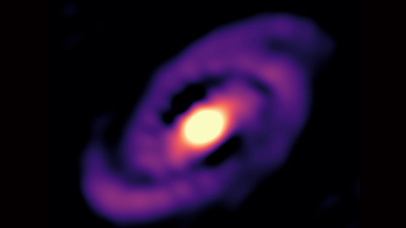Astrophysics
Exoplanets and Planet Formation
 The last few years have seen an explosion in our knowledge of extra-solar planets, and we now understand that most, if not all stars host planetary systems. However, most exoplanet systems bear little resemblance to the solar system, and the origin of the enormous diversity in observed planetary systems remains unclear.
The last few years have seen an explosion in our knowledge of extra-solar planets, and we now understand that most, if not all stars host planetary systems. However, most exoplanet systems bear little resemblance to the solar system, and the origin of the enormous diversity in observed planetary systems remains unclear.
Our research in the field of exoplanet formation uses large numerical simulations to understand the myriad of processes that shape planetary systems: how planets form in discs around young stars; how those protoplanetary discs evolve; how planets migrate; and how planetary systems are built. We also work closely with observers of both protoplanetary discs and exoplanets, in Leicester and elsewhere, in order to build up a comprehensive picture of how planetary systems form and evolve.
Our research in the field of exoplanet observation uses data from ground- and space- based telescopes to discover new exoplanets and to investigate their atmospheres. We are part of the NGTS consortium and have long standing collaborations with atmosphere modellers, working closely with them to understand irradiated brown dwarfs, exoplanet atmospheres and white dwarfs being polluted by remnants of planetary systems.